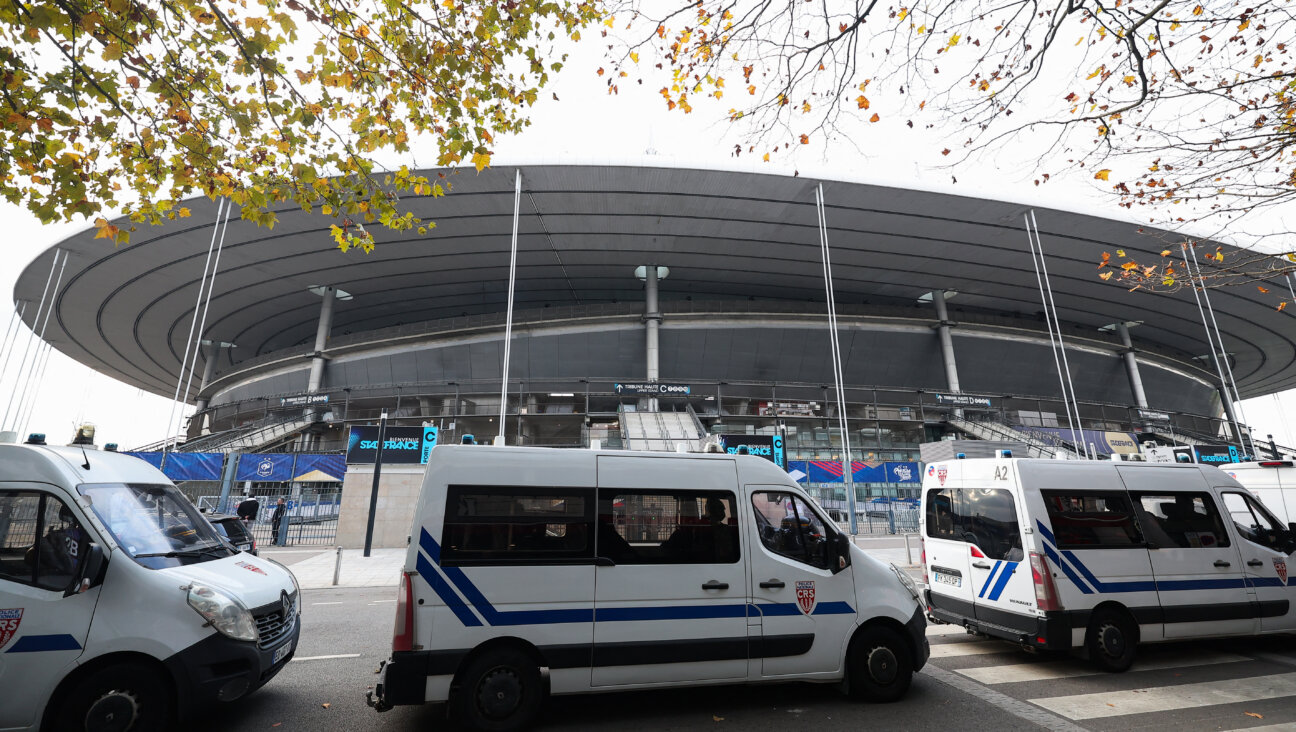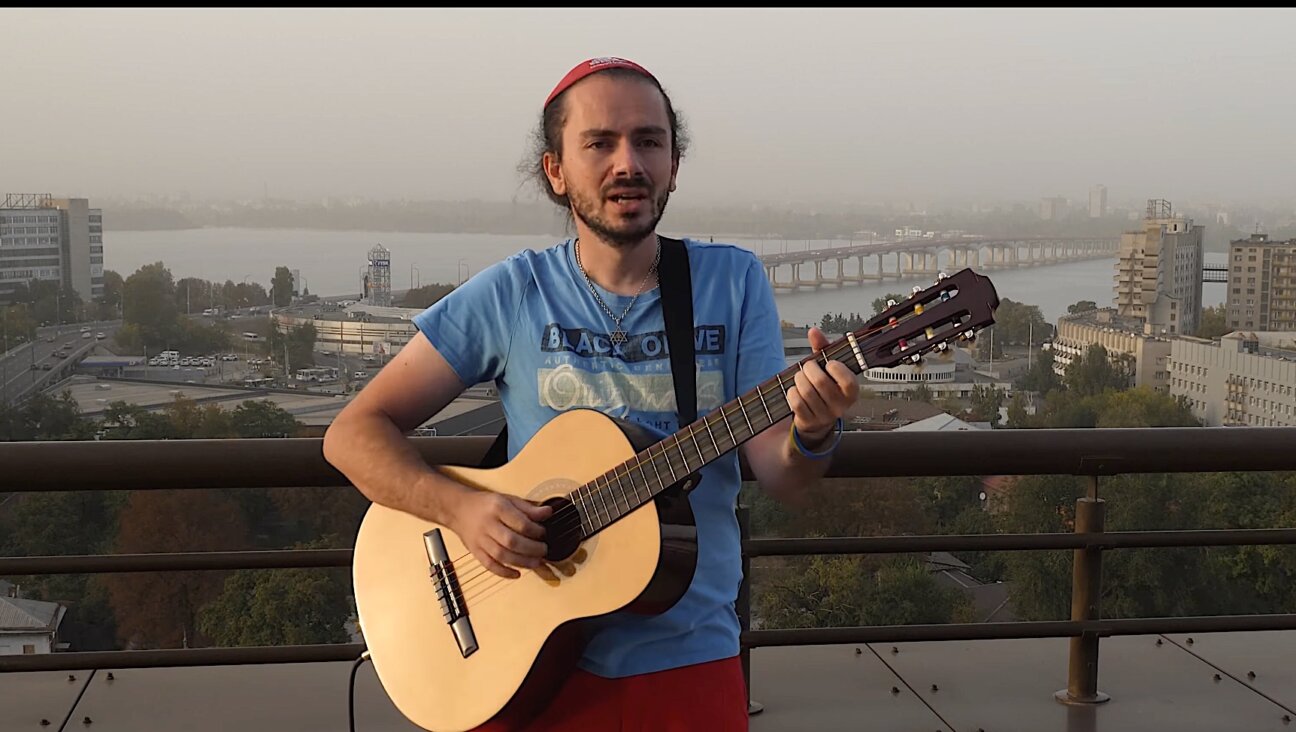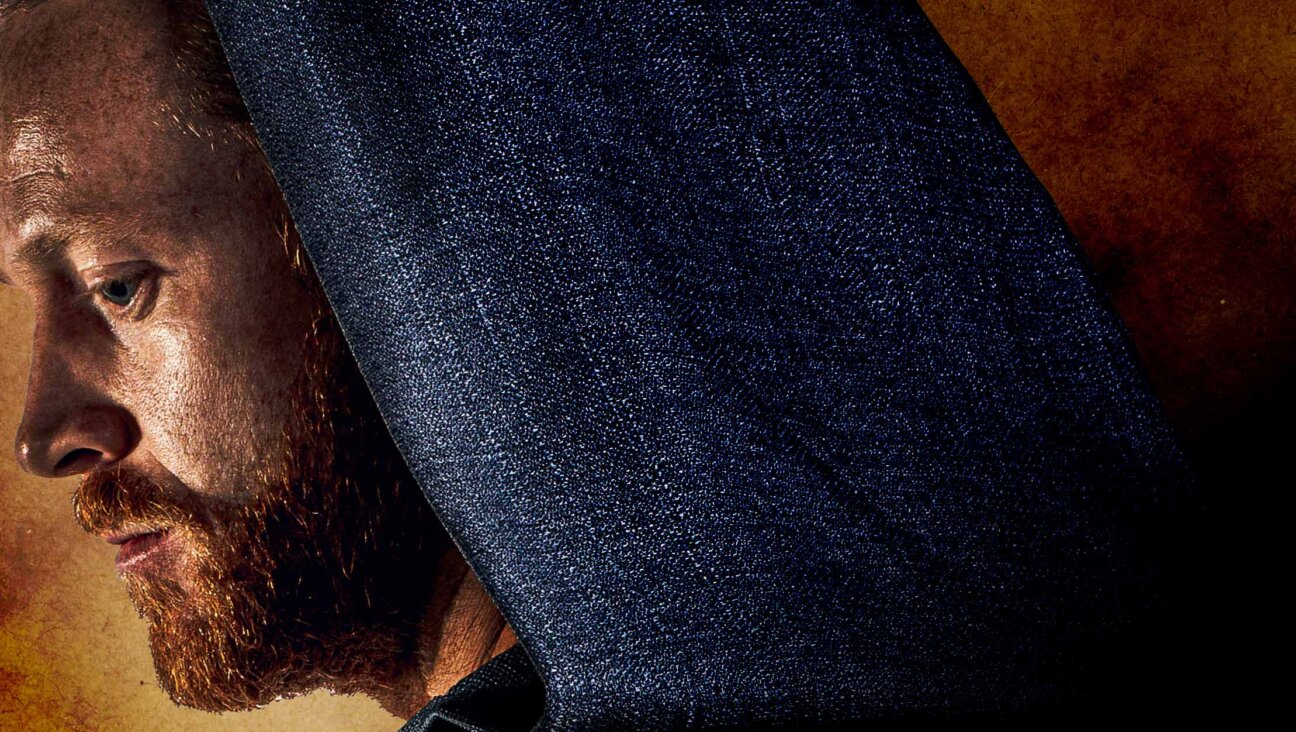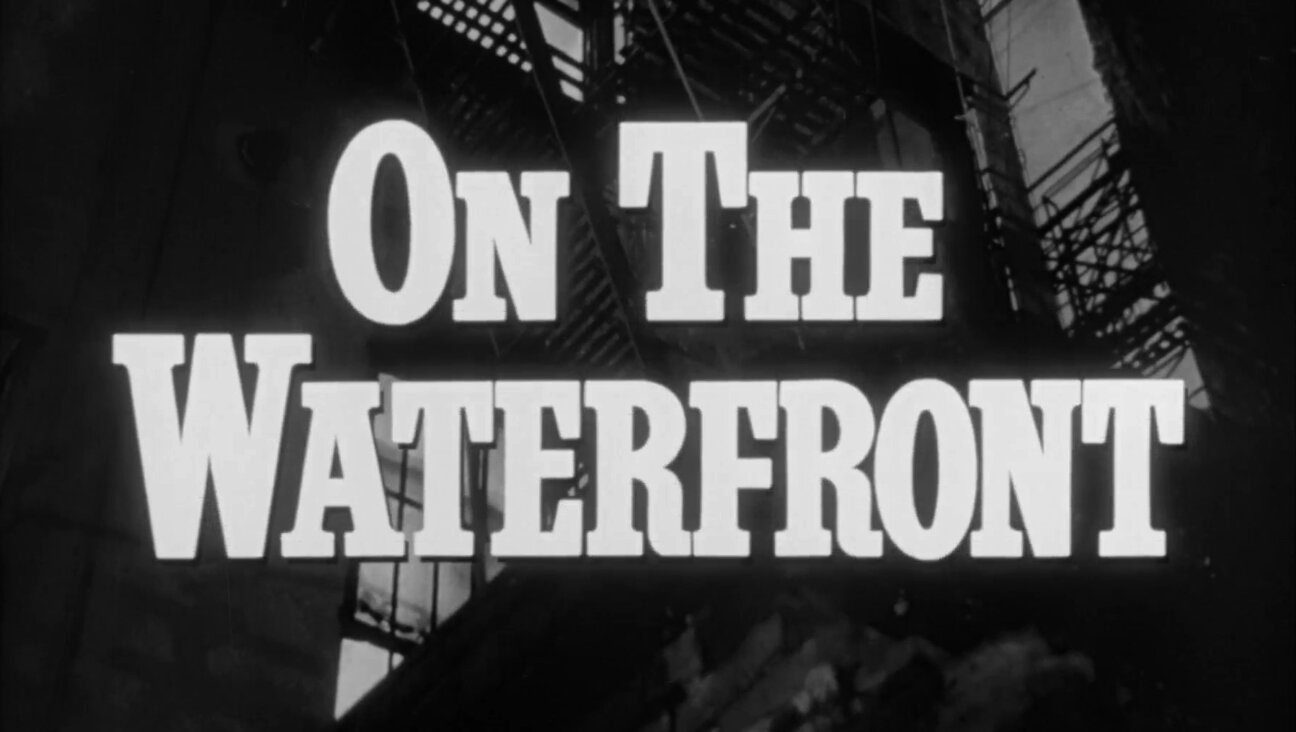The $20 Billion Peace Plan
Suppose — just for a decade or so — that for a mere $20 billion, you could solve the thorniest issue dividing Israelis and Palestinians: to wit, the issue of Jerusalem.
Yes, of course I know that the containment of terrorism is considerably more urgent than a permanent solution to the Jerusalem dispute. But we have here a chicken-egg problem: Until at least some of the major substantive issues, most especially the occupation itself, are resolved, the terrorism will doubtless continue.
The fence will reduce it, the Palestinian Authority’s new vigor (if sustained) will reduce it, but it will continue to fester so long as the underlying issues remain in the “pending” file. And among those issues, especially just now as the Israeli government announces its intention to surround Arab East Jerusalem with Jewish suburbs — thereby cutting off the contiguity of the Palestinian state that is to be — none is more pressing than the future of the Holy City.
Ah, the Holy City, Yerushalayim d’malah, the heavenly Jerusalem, the Jerusalem of song and of prayer, of age-old yearning, the always “next year” city — the city whose very air, we are told, makes one wise, Jerusalem of gold. But it is immediately obvious that at the same time, there is a very different Jerusalem, Yerushalayim d’matah, the earthly Jerusalem, this year’s Jerusalem.
In the earthly Jerusalem, the air is polluted from all the traffic. In that Jerusalem, which is this Jerusalem, there is poverty, there is Alzheimer’s, and there is love and laughter. In the one Jerusalem, only virtue, ways of pleasantness; in the other, the daily grind with its assortment of vices alongside its virtues. One exists in time and in inspired imagination, the other in space and in conventional pursuits.
Before the Zionist dream was twisted into a constricting battle for security, it was about the challenge of bringing the two Jerusalems nearer to each other, allowing the earthly Jerusalem to be kissed by the heavenly Jerusalem, allowing the heavenly Jerusalem to be transformed from idle never-never land to a here-and-now land of quotidian blessing.
And, in our zeal to remember Jerusalem, we willfully forget that we are not the only ones who remember it. As Meron Benvenisti, long ago deputy mayor of Jerusalem, once wrote, the songs the Palestinians sing about Jerusalem are no less sentimental than our own songs.
So what to do? What is the $20 billion idea?
Let the headquarters of the United Nations, the whole kit and caboodle, be removed from its current location in New York City to Jerusalem itself. Let Jerusalem, thereby, come to be seen worldwide as the center of humankind’s aspirations for a better time. And let the citizens of Jerusalem, Jews and Palestinians alike, feel daily the chosenness of their city.
The current U.N. headquarters in New York cost all of $65 million to build. (Expansion and renovation have added some millions more over the years since 1946, but my $20 billion estimate, which tries to take ballpark account not only of inflation but also of major costs for housing and infrastructure, may nonetheless be substantially too high.) It sits on 18 acres and is home to nearly 5,000 staff.
Yes, I know that the U.N. is not all it might be, that here and there it contains corruption, that its peacekeeping operations are not always as effective as we might wish and that its peacekeepers sometimes engage in sexual abuse — that it is, as Kofi Annan has urged, in dire need of structural reform.
I know that Americans, including our new ambassador to the U.N., John Bolton, have mixed feelings about the U.N., about both its legitimacy and its effectiveness. But I know as well that the world would be a dramatically more violent place without the U.N., that now and then the Security Council has achieved mighty results, that the Universal Declaration of Human Rights elaborates a concept that can and should and sometimes does inspire multitudes, that there are still places — too few, but some — where the blue helmet is respected. I know, even if the president of the United States does not, how valuable the International Court of Criminal Justice can be. I know as well that it is the United Nations that gave Israel it birth certificate.
So imagine what it would feel like to the citizens of Jerusalem, perhaps to the whole world, that in this home base of the great monotheistic religions, 5,000 staff members and their families and another 5,000 official visitors from the U.N.’s 191 member nations were to gather, along with some thousands of journalists (currently, 3,000 permanently accredited and 10,000 for major meetings). Suddenly, their city transformed into an actual and not merely metaphoric world-class center.
Such a Jerusalem would become the de facto capital of the world, and thereby much more readily be at the same time the capital of the two states whose historic quarrel has caused so much grief.
Fantasy? Most likely. But sometimes, in facing a seemingly intractable problem, it is well to expand the boundaries that typically define possible solutions.
What, then, happens to the current mantra, that “Jerusalem is the eternal undivided capital of the Jewish state of Israel?” In one sense, it simply goes the way of other useless mantras. In another, it is in fact realized at a higher level — a city undivided by fear, by hostility, by violence, by history. Is there a better twin for a city that wants to be both dream and reality than an organization also suspended between our highest rhetorical hopes and our basest ongoing conflicts?
Medieval cartographers often depicted the world with Jerusalem as its center. What if they had turned out to have been right?
Leonard Fein is the author of “Against the Dying of the Light: A Parent’s Story of Love, Loss, and Hope” (Jewish Lights).
A message from our CEO & publisher Rachel Fishman Feddersen

I hope you appreciated this article. Before you go, I’d like to ask you to please support the Forward’s award-winning, nonprofit journalism during this critical time.
At a time when other newsrooms are closing or cutting back, the Forward has removed its paywall and invested additional resources to report on the ground from Israel and around the U.S. on the impact of the war, rising antisemitism and polarized discourse.
Readers like you make it all possible. Support our work by becoming a Forward Member and connect with our journalism and your community.
— Rachel Fishman Feddersen, Publisher and CEO























